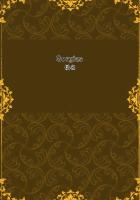But, lo and behold, not expecting to have to bore so deep, he had made his bore much too small; and the sand out of the Thanet beds "blew up" into the bore, and closed it. The poor manufacturer spent hundreds of pounds more in trying to get the sand out, but in vain; and he had at last to make a fresh and much larger well by the side of the old one, bewailing the day when he listened to the well-sinker and not to the geologist, and so threw away more than a thousand pounds. And there is an answer to what you asked on board the yacht--What use was there in learning little matters of natural history and science, which seemed of no use at all?
And now, look out again. Do you see any change in the country?
What?
Why, there to the left.
There are high hills there now, as well as to the right. What are they?
Chalk hills too. The chalk is on both sides of us now. These are the Chilterns, all away to Ipsden and Nettlebed, and so on across Oxfordshire and Buckinghamshire, and into Hertfordshire; and on again to Royston and Cambridge, while below them lies the Vale of Aylesbury; you can just see the beginning of it on their left. A pleasant land are those hills, and wealthy; full of noble houses buried in the deep beech-woods, which once were a great forest, stretching in a ring round the north of London, full of deer and boar, and of wild bulls too, even as late as the twelfth century, according to the old legend of Thomas e Becket's father and the fair Saracen, which you have often heard.
I know. But how are you going to get through the chalk hills? Is there a tunnel as there is at Box and at Micheldever?
No. Something much prettier than a tunnel and something which took a great many years longer in ******. We shall soon meet with a very remarkable and famous old gentleman, who is a great adept at digging, and at landscape gardening likewise; and he has dug out a path for himself through the chalk, which we shall take the liberty of using also. And his name, if you wish to know it, is Father Thames.
I see him. What a great river!
Yes. Here he comes, gleaming and winding down from Oxford, over the lowlands, past Wallingford; but where he is going to it is not so easy to see.
Ah, here is chalk in the cutting at last. And what a high bridge.
And the river far under our feet. Why we are crossing him again!
Yes; he winds more sharply than a railroad can. But is not this prettier than a tunnel?
Oh, what hanging-woods, and churches; and such great houses, and pretty cottages and gardens--all in this narrow crack of a valley!
Ay. Old Father Thames is a good landscape gardener, as I said.
There is Basildon--and Hurley--and Pangbourne, with its roaring lasher. Father Thames has had to work hard for many an age before he could cut this trench right through the chalk, and drain the water out of the flat vale behind us. But I suspect the sea helped him somewhat, or perhaps a great deal, just where we are now.
The sea?
Yes. The sea was once--and that not so very long ago--right up here, beyond Reading. This is the uppermost end of the great Thames valley, which must have been an estuary--a tide flat, like the mouth of the Severn, with the sea eating along at the foot of all the hills. And if the land sunk only some fifty feet,--which is a very little indeed, child, in this huge, ever-changing world,--then the tide would come up to Reading again, and the greater part of London and the county of Middlesex be drowned in salt water.
How dreadful that would be!
Dreadful indeed. God grant that it may never happen. More terrible changes of land and water have happened, and are happening still in the world: but none, I think, could happen which would destroy so much civilisation and be such a loss to mankind, as that the Thames valley should become again what it was, geologically speaking, only the other day, when these gravel banks, over which we are running to Reading, were being washed out of the chalk cliffs up above at every tide, and rolled on a beach, as you have seen them rolling still at Ramsgate.
Now here we are at Reading. There is the carriage waiting, and away we are off home; and when we get home, and have seen everybody and everything, we will look over our section once more.













